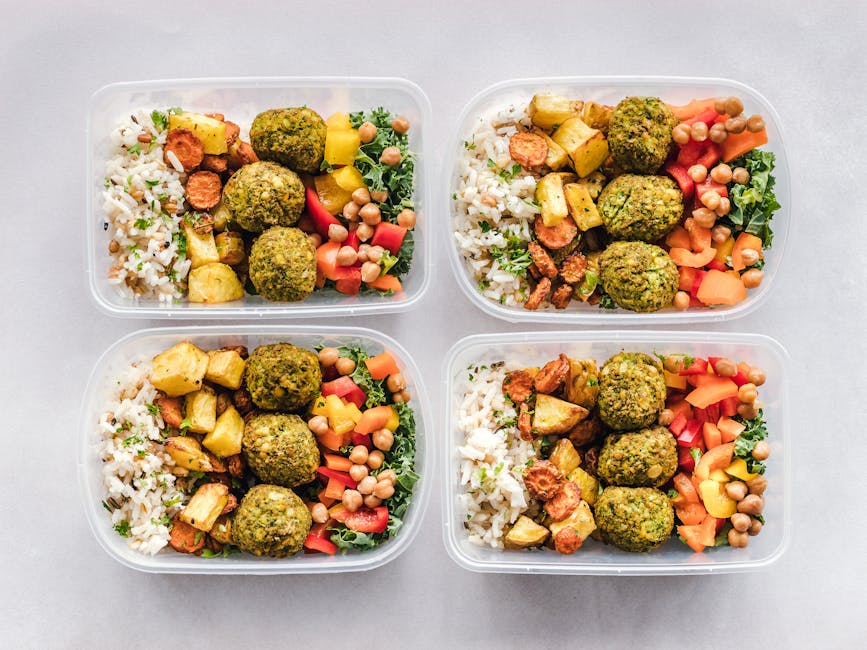Smart nutrition tips are the cornerstone of achieving optimal health and fitness. At Fit Food Wisdom, we believe that making informed choices about what you eat can transform your well-being, boost your energy, and help you reach your fitness goals. This comprehensive guide will walk you through actionable, science-backed strategies to help you eat smarter every day.
Understanding the Foundations of Smart Nutrition

Photo by Rauf Allahverdiyev on Pexels
Nutrition is more than just counting calories or following the latest diet trend. It’s about nourishing your body with the right balance of macronutrients—carbohydrates, proteins, and fats—along with essential vitamins and minerals. Smart nutrition tips begin with understanding these basics and how they affect your body’s performance, recovery, and long-term health.
Carbohydrates provide quick energy, proteins are essential for muscle repair and immune function, and healthy fats support brain health and hormone production. A well-rounded diet also includes fiber for digestive health and phytonutrients from colorful fruits and vegetables for cellular protection. By focusing on nutrient-dense foods and mindful eating, you lay a strong foundation for a lifetime of wellness.
Building Balanced Meals: The Key to Consistent Energy

Photo by Ella Olsson on Pexels
One of the most effective smart nutrition tips is to build balanced meals that keep you energized throughout the day. Aim to fill half your plate with vegetables and fruits, a quarter with lean proteins, and a quarter with whole grains or starchy vegetables. Healthy fats—like olive oil, nuts, seeds, and avocado—should be added in moderation to enhance flavor and satiety.
Meal prepping and planning ahead can help you avoid impulsive food choices and keep your nutrition on track. Consider batch-cooking proteins or grains, chopping vegetables in advance, and portioning out snacks to have healthy options ready when hunger strikes. Consistency is key: making balanced meals a daily habit supports stable blood sugar, sustained energy, and better focus.
Mastering Portion Control Without Feeling Deprived

Photo by Erik Mclean on Pexels
Portion control is a powerful tool for managing weight and preventing overeating, but it doesn’t mean you have to feel hungry or restricted. Smart nutrition tips for portion control include using smaller plates, serving food in the kitchen rather than at the table, and being mindful of hunger and fullness cues. Eating slowly and savoring each bite helps your body recognize when you’re satisfied, reducing the risk of overindulgence.
Visual cues can also help: a serving of protein is about the size of your palm, a serving of grains or starches is about the size of your fist, and a serving of fat is roughly the size of your thumb. By tuning in to your body’s signals and practicing mindful eating, you can enjoy your favorite foods in moderation and maintain a healthy relationship with food.
Hydration: The Overlooked Pillar of Nutrition

Photo by Omar Medina on Pexels
Staying hydrated is often overlooked in nutrition discussions, but it’s crucial for optimal health. Water supports digestion, nutrient absorption, temperature regulation, and the elimination of toxins. Even mild dehydration can lead to fatigue, headaches, and reduced cognitive performance.
Smart nutrition tips for hydration include starting your day with a glass of water, keeping a reusable water bottle with you, and flavoring water with fresh fruit or herbs if plain water feels boring. Aim for at least 8 cups (about 2 liters) of water daily, adjusting for activity level, climate, and individual needs. Remember that caffeinated and sugary drinks don’t provide the same benefits as pure water.
The Role of Mindful Eating in Lasting Wellness

Photo by Dmitri Sotnikov on Pexels
Mindful eating is a practice that encourages you to slow down, pay attention to your food, and savor each bite. It helps you become more aware of your hunger and satiety signals, making it easier to avoid emotional or stress-driven eating. Smart nutrition tips for mindful eating include turning off screens during meals, chewing thoroughly, and appreciating the flavors, textures, and aromas of your food.
By practicing mindful eating, you can improve digestion, enjoy your meals more, and make healthier choices naturally. Over time, this approach can help reduce cravings, prevent overeating, and foster a positive relationship with food.
Smart Snacking: Fueling Your Body Between Meals

Snacking isn’t inherently unhealthy—when done right, it can keep your energy levels stable and prevent overeating at main meals. The key is to choose nutrient-dense snacks that combine protein, fiber, and healthy fats. Examples include Greek yogurt with berries, hummus with veggie sticks, or a handful of nuts and seeds.
Smart nutrition tips for snacking include planning your snacks ahead of time, avoiding processed and sugary options, and paying attention to portion sizes. Listen to your body: snack when you’re genuinely hungry, not out of boredom or habit.
Debunking Common Nutrition Myths

Photo by MART PRODUCTION on Pexels
With so much nutrition information online, it’s easy to fall for myths and misconceptions. Smart nutrition tips are rooted in evidence, not trends. Common myths include the idea that all carbs are bad, fat-free foods are always healthier, or that skipping meals speeds up weight loss. In reality, carbohydrates are essential for energy, healthy fats support numerous bodily functions, and regular meals help maintain stable blood sugar.
Always seek information from credible sources, and remember that what works for one person may not work for another. Personalized nutrition—considering your unique needs, preferences, and lifestyle—is the best approach for lasting health.
Adapting Smart Nutrition Tips for Different Lifestyles

Photo by Pavel Danilyuk on Pexels
Whether you’re an athlete, a busy professional, a parent, or someone managing a health condition, smart nutrition tips can be adapted to fit your lifestyle. Athletes may need more protein and carbohydrates for recovery and performance, while busy individuals benefit from meal prepping and portable snacks. Families can focus on creating balanced meals together and involving children in food choices to encourage healthy habits from a young age.
If you have specific dietary needs—such as vegetarian, vegan, gluten-free, or food allergies—work with a registered dietitian to ensure you’re meeting all your nutritional requirements. Flexibility and personalization are key to making smart nutrition a sustainable part of your life.
Supplements: When and How to Use Them Wisely

Photo by Nataliya Vaitkevich on Pexels
While most nutrients should come from whole foods, there are situations where supplements can help fill gaps in your diet. Common examples include vitamin D in areas with little sunlight, vitamin B12 for vegans, or iron for those with increased needs. However, supplements should not replace a balanced diet.
Smart nutrition tips for supplements include consulting with a healthcare professional before starting any new supplement, choosing high-quality products, and avoiding megadoses unless medically indicated. Focus on food first, and use supplements to support—rather than substitute—healthy eating habits.
Creating Lasting Habits: Making Smart Nutrition a Lifestyle

Photo by cottonbro studio on Pexels
Adopting smart nutrition tips is not about perfection or restriction—it’s about making small, sustainable changes that add up over time. Set realistic goals, track your progress, and celebrate your successes. Surround yourself with supportive people, and don’t be afraid to seek professional guidance if you need it.
Remember, optimal health is a journey, not a destination. By prioritizing smart nutrition, you’re investing in your long-term well-being, energy, and happiness. Fit Food Wisdom is here to guide you every step of the way.
Sources
- https://nutriadmin.com/blog/seo-and-content-strategy-for-nutritionists/
- https://nutrium.com/blog/importance-of-seo-for-nutrition-professionals/
- https://serpzilla.com/blog/seo-for-nutritionists/
- https://www.flamingoagency.com/blog/seo-for-dietitians/
- https://keenoa.com/blog/how-to-write-a-seo-nutrition-article-for-dietitians/

